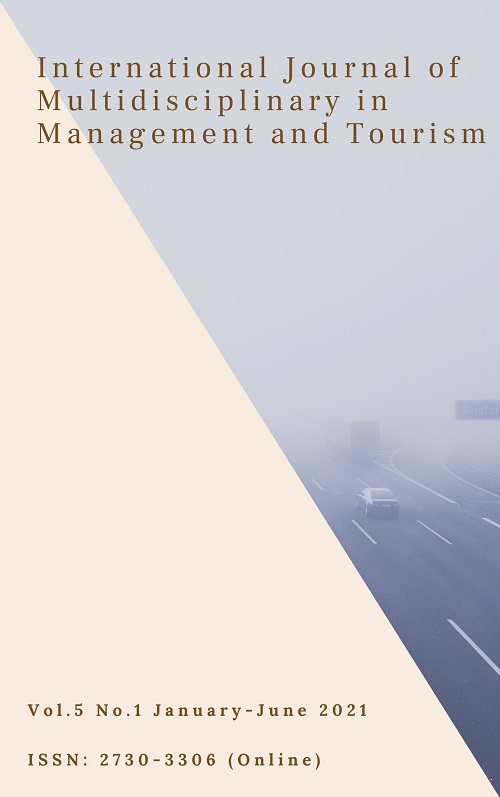Public Opinion Survey on the Government's Economic Policy of the NCPO
Main Article Content
Abstract
This research gathers the public opinion on the economic policy of the government's past operations (the NCPO) for research analysis, which uses qualitative research, group discussions, and interviews with individuals and business sector entrepreneurs. The research instrument is carefully scrutinized, and the credibility is strengthened by triangulated observations of the environment and the reactions of the people interviewed. The research identifies a significant influence of government policy implementation on the opinions of people and entrepreneurs, which also affect the production potential and economic growth in the future. To effectively use the results of this study for policy recommendation, four Thai-economy supportive factors are to be stressed: (1) government capital factors have a positive effect on long-term economic growth; therefore there is a need to increase investment in large projects; (2) should promote the network of enterprises to be strong in order to create an exchange of knowledge within the entrepreneur's group of agriculture and services, and (3)Investment promotion policies that are beneficial to production development attracting foreign investment with high technology to increase production and, (4) have information systems for production and clear indicators to improve the productivity of Thailand effectively.
Article Details

This work is licensed under a Creative Commons Attribution-NonCommercial-NoDerivatives 4.0 International License.
References
Arun Ruk Tham. (1997). Development and training: Behavioral study. Bangkok: Faculty of Religious Studies, National Institute of Development Administration.
Alesina, A., Ozler, S., Roubini, N., & Swagel, P. (1996). Political instability and economic growth. Journal of Economic Growth, 1, 189–211.
Barro, R., (1991). Economic growth in cross section of countries. Quarterly Journal of Economics, 106, 407–443.
Bangkok University Research Center. (2019). Assess the economic performance of the government. Gen. Prayut (complete 6
Darby, J., Li, C., & Muscatelli, V. (2004). Political uncertainty, public expenditure and growth. European Journal of Political Economy, 20, 153–179.
Fosu, A. K. (2001). Political instability and economic growth in developing economies: Some Specification Empirics. Economics Letters, 70, 289-294.
Gibson, J. (2000). Organizations, behavior, structure, process. (9th ed.) New York: McGraw Hill.
Jong-A-Pin, R. Z (2009.) On the measurement of political instability and its impact on economic growth. European Journal of Political Economy, 25, 15–29.
Nuan Noi Trirat. (2562). 4 years of Thai economy in the hands of the NCPO government. Retrieved on June 19, 2019 from https://www.chula.ac.th/cuinside / 9264 /
Newstrom, J. W., & Devis, K. (2002). Human behavior at work. New York: McGraw Hill.
Prapen Sawaranu. (1994). Behavioral science: health behavior and health education. The Great God Cage: Chao Phraya Pimp
Paphawadee Dulyachinda. (1997). Human behavior in the organization. Nonthaburi: Sukhothai Thammathirat Open University.
Phongsak Leungaram and Yuthana Sethapamote. (2019). Economic development of Thailand uncertainty in Thailand. Retrieved on 19 June 2019 from https://www.pier.or.th/ wp content / uploads / 2018/05 / pier_dp_086.pdf
Sakthai Surakit Bowon. (2002). Social psychology. Bangkok: Suviriyasarn.
Sanguan Sutthireerarun and Faculty. (1979). Social psychology. Bangkok: Chai Siri Printing.
Sopha Chu Phikunchai. (1979). Applied social psychology. Bangkok: Thai Wattana Panich.
Svensson, J. (1998). Investment, property rights and political instability: Theory and evidence. European Economic Review, 42, 1317–1341.
Thurston. L. L. (1946). Comment. American Journal of Sociology, 52, 39-50.

